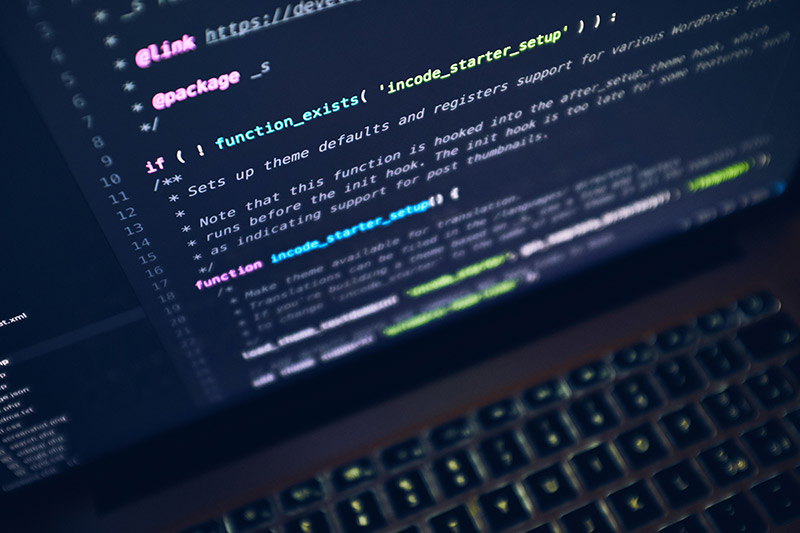Blockchain Technology (2025)
Blockchain technology in 2025 has evolved significantly. It is now more secure, efficient, and widely adopted across various industries. Key features include decentralization, transparency, and the ability to streamline complex systems. As we move into the future, blockchain is not just about cryptocurrencies anymore; it is being used to address issues in finance, healthcare, supply chains, voting, and more.
Blockchain Consensus Mechanisms (2025)
One of the most important updates in blockchain is the improvement of consensus mechanisms. Proof of Stake (PoS) 2.0 is becoming more energy-efficient and secure, while Proof of Authority (PoA) is gaining popularity in businesses looking for a more centralized approach. Delegated Proof of Stake (DPoS) is also improving scalability in public blockchains. In 2025, there are more hybrid consensus systems combining different methods to improve performance and security.
Blockchain for Financial Services
Blockchain is changing the financial landscape. Central Bank Digital Currencies (CBDCs) are becoming more common, allowing governments to issue their own digital currencies. Decentralized Finance (DeFi) platforms are evolving into more stable systems. Cross-border payments using blockchain are reducing fees and speeding up transactions. Additionally, stablecoins, which are digital currencies pegged to a stable asset, are becoming more secure and reliable in 2025.
Supply Chain and Logistics Blockchain
Blockchain is also making supply chains more efficient. Companies are using blockchain for transparent tracking of goods, ensuring products are not tampered with or counterfeit. Blockchain also helps manage cold chain logistics, which is crucial for temperature-sensitive items. Furthermore, integrating blockchain with Internet of Things (IoT) devices allows for real-time, decentralized tracking of products throughout the supply chain.
Healthcare and Blockchain
In healthcare, blockchain is being used to manage patient records securely and ensure they are easily accessible across different systems. It is also being used to track pharmaceutical supply chains, reducing the risk of counterfeit drugs. Additionally, blockchain technology is improving the transparency and efficiency of clinical trials, allowing researchers to share data more easily while maintaining privacy.
Blockchain in Energy
The energy sector is benefiting from blockchain through decentralized energy trading platforms, where consumers can trade energy directly with each other. Blockchain is also helping track carbon credits and enabling a more transparent and efficient market for sustainable energy. It’s also improving how we manage energy consumption data, helping to create smarter and more efficient grids.
Blockchain in Government and Voting
Blockchain is being explored for secure voting systems. It offers a way to ensure votes are transparent and tamper-proof, which could increase trust in elections. Governments are also looking at blockchain for digital identity systems, allowing citizens to have more control over their personal information. Additionally, blockchain could help with land registration, reducing fraud and making property transactions smoother.
Blockchain for Privacy and Security
One of the biggest concerns in today’s digital world is privacy, and blockchain is addressing this issue. Zero-Knowledge Proofs (ZKPs) allow for secure transactions where no sensitive information is revealed. Self-Sovereign Identity (SSI) is a model where individuals own and control their personal data. Blockchain is also being used for new types of encryption to better protect sensitive information.
Decentralized Applications (dApps)
Decentralized applications (dApps) are becoming more popular in 2025, as blockchain technology enables users to interact without relying on central servers. These apps can be used for everything from gaming to finance. The Web3 ecosystem, which is built on blockchain, is expanding rapidly, allowing users to engage in decentralized activities more freely. Additionally, Non-Fungible Tokens (NFTs) are evolving into more functional digital assets, going beyond art and collectibles to serve as digital ownership of various goods.
Blockchain Interoperability
For blockchain networks to reach their full potential, they need to communicate with each other. Cross-chain platforms are emerging to enable this kind of interaction, allowing different blockchain networks to share data and value. Layer-2 solutions are also being developed to make blockchain transactions faster and more scalable. Blockchain bridges are becoming more common, helping to connect different networks seamlessly.
Blockchain and Artificial Intelligence
In 2025, blockchain and artificial intelligence (AI) are being combined to create new, decentralized AI systems. AI models can be securely trained and shared using blockchain, making them more transparent and trustworthy. Blockchain is also being used to power smart contracts that automatically execute when certain conditions are met, with AI providing real-time decision-making abilities.
Blockchain in Gaming and NFTs
Gaming is being transformed by blockchain through play-to-earn models, where players can earn rewards by participating in games. NFTs are used to create in-game assets that players truly own, such as skins, items, or characters. Decentralized gaming platforms are emerging, allowing players to own the platforms themselves, rather than being subject to corporate control.
Blockchain for Intellectual Property and Copyright
Blockchain is being used to protect intellectual property and simplify the licensing of creative works. Smart contracts can automatically handle royalty payments and other copyright-related tasks. Additionally, blockchain is creating decentralized copyright registries, which help to track and protect intellectual property rights more transparently.
Privacy Coins and Blockchain Anonymity
Privacy coins, such as Monero and Zcash, are evolving in 2025 to offer better anonymity for transactions. These cryptocurrencies use advanced cryptographic techniques to keep transactions hidden from third parties. Blockchain is also being used in decentralized finance (DeFi) platforms to offer more private transactions, enabling users to protect their financial data.
Blockchain for Real Estate
Blockchain is making real estate transactions simpler and more secure. Property tokenization allows people to invest in real estate through blockchain-backed tokens, which means fractional ownership is possible. Additionally, blockchain-based smart contracts are being used to handle property leases and agreements, streamlining the process and reducing the need for intermediaries.
Blockchain for Education and Certifications
Education systems are embracing blockchain to issue digital credentials and certificates. These credentials can be easily verified on the blockchain, making it harder for fake qualifications to circulate. Decentralized learning platforms are also emerging, allowing individuals to access and earn verifiable certificates from various online courses and programs.
Legal and Compliance Blockchain
Blockchain is changing how legal contracts are managed. Smart contracts can automate agreements, ensuring both parties meet their obligations. In industries that are heavily regulated, blockchain can be used to track compliance and ensure that companies follow the rules. This can help reduce errors and prevent fraud.
Blockchain for Charities and Fundraising
Blockchain is revolutionizing charity work by offering transparency in how donations are used. Donors can track exactly where their money goes, ensuring it’s used for the intended cause. Additionally, blockchain-based fundraising platforms are helping to facilitate tokenized donations, which allows for more efficient and secure charitable giving.
Environmental Blockchain
Blockchain is being used to address environmental issues. In waste management, blockchain is being used to track and verify recycling efforts, ensuring that waste is disposed of responsibly. Additionally, blockchain networks are becoming more energy-efficient, reducing the environmental impact of the technology itself. Sustainable blockchain projects are focusing on lowering energy consumption and creating eco-friendly solutions.
Blockchain in Retail
Retailers are adopting blockchain to improve transparency in their supply chains. Customers can use blockchain to trace the origin of the products they buy, ensuring they are ethically sourced and free of counterfeit goods. Blockchain is also being used in loyalty programs, allowing customers to earn and redeem rewards in a decentralized way.
Blockchain in Arts and Culture
Blockchain is making its mark in the arts and culture sector by offering digital art ownership through NFTs. These tokens represent a person’s proof of ownership of a piece of digital art. Additionally, blockchain is being used to preserve cultural heritage by creating digital records of historical artifacts, ensuring they are protected for future generations.
Blockchain technology in 2025 is shaping up to be more secure, efficient, and integrated into a variety of industries. From healthcare to gaming and energy to voting systems, blockchain is revolutionizing the way we interact with the digital world. As the technology continues to evolve, it holds immense potential to transform society and the way businesses operate.

